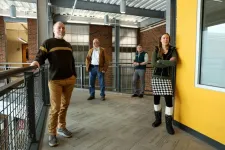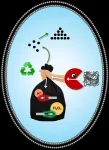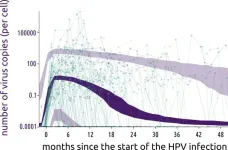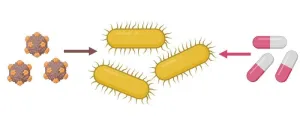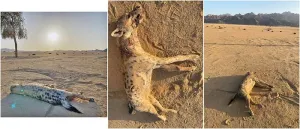(Press-News.org) UK oncology researchers have come together to write the first ever national thought leadership strategy report into cancer vaccine advances and the opportunities these present for those affected by cancer. The strategy report has been published in Cambridge University Press journal Cambridge Prisms: Precision Medicine.
Cancer vaccines hold the potential to revolutionise cancer treatment. These vaccines leverage neoantigens to activate the immune system against tumours, offering a personalised approach to combat cancer. This transformative potential is particularly significant in light of recent advancements in oncology, including immune checkpoint inhibitors and CAR-T cell therapies.
The backdrop of the COVID-19 pandemic has also demonstrated how possible it is to develop vaccines swiftly, setting the stage for a strategic shift towards cancer vaccine trials. The UK, with its substantial contributions to both vaccine development and distribution during the pandemic, is uniquely well-positioned to lead this charge.
Lead author Lennard Lee, Associate Professor of Cancer Vaccines at the University of Oxford and clinical advisor on the NHS Cancer Vaccine Launchpad, said: “A central challenge for the UK in developing cancer vaccines lies in harnessing national infrastructure, particularly the country’s healthcare system, to facilitate efficient trials.
“This will require careful coordination and allocation of resources to support local trial delivery centres across the country.
“Yet the UK is a scientific powerhouse – meaning that with continued investment and effort, there is no reason why the UK shouldn’t be a pioneer in cancer vaccine development.”
The researchers also offered four key recommendations for how the UK can best level-up in cancer vaccine research. These recommendations are:
1. Leverage COVID-19 vaccine success. Insights can be drawn from the rapid development and deployment of COVID-19 vaccines. Processes were streamlined, pragmatism prevailed over perfections and groups were able to make timely decisions. Cancer vaccine trials should be delivered in a similar fashion.
2. Create shared missions. There is a multitude of pharmaceutical partners with new cancer vaccine technologies across many different subtypes of cancers. Ambitious long-term partnerships between trialists, sites, industry, healthcare leads and patient groups can forge the path for continual iterative improvement of cancer vaccine technologies.
3. Modern trials infrastructure. Cancer vaccines require effective trials infrastructure with seamless integration of genomic data across different platforms and institutions. Trial teams and infrastructure should receive investments to upgrade and be made as effective as possible.
4. Engage public and trialists. Greater attempts can be made at fostering effective public awareness. This includes understanding the potential opportunities and limitations of cancer vaccine technology. It should aim to garner support and increase the momentum of clinical trials at small as well as large cancer centres.
END
Time to boost cancer vaccine work, declare UK researchers
2025-01-21
ELSE PRESS RELEASES FROM THIS DATE:
Colorado State receives $326M from DOE/EPA to improve oil and gas operations and reduce methane emissions
2025-01-21
The Department of Energy and Environmental Protection Agency have awarded $326 million to three Colorado State University research projects that aim to improve U.S. oil and gas operations and reduce methane emissions nationwide.
The EPA’s Methane Emissions Reduction Program is providing the funding to the CSU Energy Institute and faculty working across multiple departments in the Walter Scott, Jr. College of Engineering, with the goal of helping oil and gas operators improve operational efficiency and manage emissions. The efforts will also support activity to build an inventory of methane emissions, ...
Research assesses how infertility treatments can affect family and work relationships
2025-01-21
Infertility is a problem that affects between 8% and 12% of couples of reproductive age worldwide – for some of them, the problem interrupts a life project, which is the desire to have children and build a family. Advances in technology and medicine have made assisted reproductive treatments possible, but they can be physically and psychologically draining for the couples involved, especially because of expectations of results that may not be achieved.
The emotional impact of treatment is well documented in the scientific literature. ...
New findings shed light on cell health: Key insights into the recycling process inside cells
2025-01-21
A recent study from Tata Institute of Fundamental Research, Mumbai, India has revealed new details about how our cells clean up and recycle waste. This process, known as autophagy, is like a self-cleaning mechanism for cells, helping the cells stay healthy by getting rid of damaged parts and recycling useful components. The process involves formation of a vesicle called autophagosome, which encapsulates the cellular waste. The autophagosome then fuses with another type of vesicle called lysosome. ...
Human papillomavirus infection kinetics revealed in new longitudinal study
2025-01-21
Non-persistent human papillomavirus (HPV) infections are characterized by a sharp increase in viral load followed by a long plateau, according to a study published January 21st in the open-access journal PLOS Biology by Samuel Alizon of the National Centre for Scientific Research (CNRS), France, and colleagues.
Chronic HPV infection is responsible for more than 600,000 new cancers each year, including nearly all cervical cancers. Infection among young women is common, impacting nearly 20% of women 25 years of age. Fortunately, the vast majority of these infections ...
Antibiotics modulate E. coli’s resistance to phages
2025-01-21
In your coverage, please use this URL to provide access to the freely available paper in PLOS Biology: http://journals.plos.org/plosbiology/article?id=10.1371/journal.pbio.3002952
Article title: Chloramphenicol and gentamicin reduce the evolution of resistance to phage ΦX174 by suppressing a subset of E. coli LPS mutants
Author countries: Germany
Funding: This work was generously supported by funds from the Max Planck Society (L.P.-F.B.). L.P. was supported by the International Max Planck Research ...
Building sentence structure may be language-specific
2025-01-21
Do speakers of different languages build sentence structure in the same way? In a neuroimaging study published in PLOS Biology, scientists from the Max Planck institute for Psycholinguistics, Donders Institute and Radboud University in Nijmegen recorded the brain activity of participants listening to Dutch stories. In contrast to English, sentence processing in Dutch was based on a strategy for predicting what comes next rather than a ‘wait-and-see’ approach, showing that strategies may differ across languages.
While listening to spoken language, people need to link ‘abstract’ knowledge of grammar to ...
Biotin may shield brain from manganese-induced damage, study finds
2025-01-21
While manganese is an essential mineral involved in many bodily functions, both deficiency and excessive exposure can cause health issues. Maintaining a balanced diet typically provides sufficient manganese for most individuals; however, high levels of exposure can be toxic, particularly to the central nervous system. Chronic manganese exposure may result in a condition known as manganism, characterized by symptoms resembling Parkinson's disease, including tremors, muscle stiffness, and cognitive disturbances.
New research published in Science Signaling employs model systems and human nerve cells to show the mechanisms by which manganese inflicts damage ...
Treatment for children with obesity has lasting effect
2025-01-21
When children with obesity undergo weight-loss treatment, the effects have repercussions later in life and the risk of serious health problems and premature death is lower as they reach young adulthood. However, this is not the case for depression and anxiety, a study from Karolinska Institutet published in JAMA Pediatrics reports.
The study shows that children and adolescents who respond well to obesity treatment are less likely to develop obesity-related diseases, such as type 2 diabetes, hypertension and dyslipidaemia (abnormally high levels of fat in the blood) as young adults.
The treatment studied ...
Spotted hyena found in Egypt for the first time in 5,000 years
2025-01-21
A spotted hyena (Crocuta crocuta) has been found in South Eastern Egypt: the first recorded instance of the creature in this region for thousands of years.
The lone individual was caught and killed by people around 30km from the border with Sudan, a paper in De Gruyter’s Mammalia reports.
“My first reaction was disbelief until I checked the photos and videos of the remains,” said the study’s lead author, Dr. Adbullah Nagy from Al-Azhar University, Egypt. “Seeing the evidence, I was completely taken aback. It was beyond anything we had expected to find in Egypt.”
The sighting took place some 500km north of the known range of spotted ...
SignGPT – Project awarded £8.45m to build a sign language AI model for the Deaf community
2025-01-21
A large-language model (LLM) built to meet the needs of the Deaf community, translating between signed and spoken language, is the aim of a new project led by the University of Surrey.
SignGPT: Building Generative Predictive Transformers for Sign Language has been awarded £8.45m from the UK Engineering & Physical Sciences Research Council. The five-year project will build tools to allow spoken language to be automatically translated into photo-realistic sign language and video of sign language to be translated into spoken language – a complex translation problem that is yet to be solved.
Surrey ...
